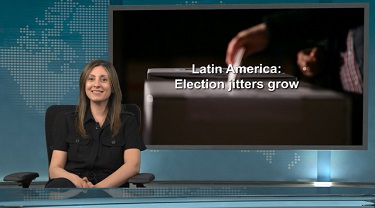The Colombia elections
Time of writing, Colombia recently concluded its final round of presidential elections on June 17 which saw right-leaning candidate Iván Duque face leftist candidate Gustavo Petro. The vote was polarizing as the two candidates represented an ideological divide in their approach to the historic 2016 FARC peace agreement and on the economy. While Duque is pro-market, Petro favoured heavier government intervention. Duque won the presidency with reportedly just under 54% of the vote. His win – which was our base case scenario – will likely mean a hardline security policy direction which will have long-term implications for the security environment. However, it also means a green light to pursue a stronger business environment characterized by fiscal reforms, pro-market policies and the facilitation of investment into the extractive sector.
The Mexico elections
In Mexico, voters are gearing up for watershed general elections on July 1st. The incumbent PRI party, which led the implementation of structural reforms aimed at increasing market liberalization and competitiveness, faces low approval ratings for its candidate, José Antonio Meade. Opinion polls indicate left-leaning nationalist candidate Andres Manuel Lopez Obrador (AMLO) is poised for a decisive win on a populist platform targeting corruption and addressing social inequalities.
Many investors fear an AMLO victory would trigger a sharp break in Mexico’s economic and fiscal policy direction, dent economic growth and turn back the clock on energy sector reforms. These are clearly pivotal elections for Mexico. However, it is far from clear that even in the event of an AMLO presidential victory, his Morena party would hold a majority position in Congress – let alone a Congressional supermajority that would enable a sweeping reversal of key structural reforms enshrined in the constitution. A divided congress – which we assess as the more likely scenario – would act as an institutional check and lever for political compromise and pragmatism, should establishment parties retain a sizeable number of seats. The new Congressional makeup is therefore a key factor to watch in determining Mexico’s future policy direction.
The Brazil elections
Rounding out our election watch is Brazil, which will see first-round voting in its general elections commence on October 7. There are more than a dozen candidates: the top five include jailed former President Luiz Inácio Lula da Silva as front-runner, followed by far-right conservative candidate Jair Bolsonaro, Marina Silva, Ciro Gomes and Geraldo Alckmin. Complicating matters, it remains unclear whether Lula will be permitted to run. With a two-round election and high rates of voter disenchantment, outcomes are indeed uncertain. In the likely event Lula cannot contest the election, understanding where pro-Lula voters might throw their support will be key. While not underestimating the challenge from leftist candidates, our base scenario is that centrist and pro-business candidate Alckmin will win in the second-round run-off, representing continuity in Brazil’s market-friendly policy direction.
The bottom line?
Predicting electoral outcomes in highly polarized elections against a backdrop of recent global electoral surprises is a difficult exercise at best. Investors and exporters are concerned given the highly polarized nature of these elections – rightly so. But amid the evolving risk landscape, it is important to seek out country risk and sector-specific analysis to facilitate sound risk management without the background noise. Identifying the key risks and opportunities that can affect your bottom line will be paramount to weathering this electoral storm.





